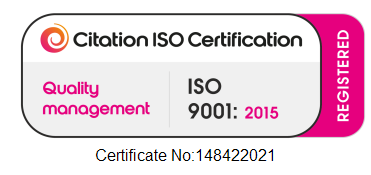In today's clinical research landscape, electronic data collection tools are essential for gathering accurate, timely, and reliable patient information. Electronic Clinical Outcome Assessments (eCOA) and Electronic Patient-Reported Outcomes (ePRO) are two prevalent methods. While related, they serve distinct purposes, and choosing the correct one is vital for trial success.
What is ePRO?
Electronic Patient-Reported Outcomes (ePRO) specifically captures health information directly reported by patients, such as symptoms, side effects, or quality of life metrics. This patient-centred approach facilitates immediate, accurate data entry, significantly enhancing engagement and compliance.
Key Features of ePRO:
- Patient-Centric Reporting: Directly captures patient experiences.
- Real-Time Data Entry: Ensures timely and accurate reporting.
- Improved Patient Compliance: Easy-to-use interfaces encourage consistent patient participation.
What is eCOA?
Electronic Clinical Outcome Assessments (eCOA) are broader in scope, incorporating various data collection methods:
- ePRO: Patient-reported outcomes.
- ClinRO: Clinician-reported outcomes.
- ObsRO: Observer-reported outcomes.
- PerfO: Performance-based outcomes.
By integrating multiple perspectives, eCOA delivers a comprehensive view of patient health, suitable for complex clinical research requirements.
Advantages of eCOA:
- Comprehensive Data Collection: Integrates multiple data perspectives.
- Reduced Biases: Combines subjective patient experiences with objective clinician assessments.
- Enhanced Regulatory Compliance: Robust approach suitable for rigorous clinical trial standards.
eCOA vs ePRO: A Comparative Overview
| Feature | ePRO | eCOA |
|---|---|---|
| Data Sources | Patient-reported only | Patient, clinician, observer, and performance data |
| Complexity | Simpler, focused method | More complex, multi-source data collection |
| Typical Use Case | Patient-centred studies | Comprehensive clinical trials requiring diverse data |
| Regulatory Compliance | High | Very high, suitable for stringent trial protocols |
When to Choose eCOA vs ePRO in Clinical Trials
Use ePRO when:
- The study's primary focus is patient-reported symptoms, quality of life, or subjective health outcomes.
- Streamlined, rapid data collection is required.
- Budget or study scope constraints limit the complexity of data collection.
Use eCOA when:
- The trial demands a holistic patient health assessment, integrating clinician and observer perspectives.
- Regulatory bodies require comprehensive and diverse data points.
- Clinical endpoints include both subjective and objective outcomes.
How STK Life Devices Optimise eCOA and ePRO Data Collection
STK Life specialises in tailored smart devices explicitly designed to enhance eCOA and ePRO data collection in clinical trials. Our devices ensure:
- Secure, Reliable Data Collection: Adhering to global regulatory standards and ensuring data integrity.
- Enhanced Patient Compliance: User-friendly, intuitive designs encourage patient engagement.
- Flexible, Customised Solutions: Devices can be personalised to match your trial's specific requirements.
- Remote & Global Compatibility: Devices function seamlessly worldwide, facilitating decentralised and remote trial management.
Explore STK Life’s eCOA & ePRO Devices
Real-World Impact: STK Life Case Study
STK Life recently partnered on a decentralised oncology trial, utilising customised eCOA and ePRO devices. The result was a 35% improvement in patient data accuracy and a notable increase in compliance rates, highlighting the effectiveness and patient-centric design of STK Life devices.
Conclusion
Choosing between eCOA and ePRO depends significantly on the goals, complexity, and regulatory demands of your clinical trial. Understanding these differences can lead to more effective and accurate data collection, ultimately improving trial outcomes. STK Life is here to guide you every step of the way, providing innovative solutions tailored to your clinical research needs.
Ready to enhance your clinical trial data collection? Contact STK Life today to discuss how we can support your research goals.
FAQs
Q: Can ePRO be considered part of eCOA?
A: Yes, ePRO is one type of eCOA focused exclusively on patient-reported outcomes.
Q: Are STK Life’s devices suitable for both eCOA and ePRO?
A: Absolutely. Our devices fully support both methodologies, delivering precise data collection across diverse clinical scenarios.
Q: How does STK Life ensure data security?
A: STK Life devices feature advanced encryption and comply with international regulatory standards, ensuring data confidentiality and integrity.
Q: Can STK Life devices be customised?
A: Yes, devices are fully customisable to accommodate specific trial protocols, patient demographics, and regulatory requirements.
Q: Do STK Life devices support decentralised trials?
A: Yes, our devices are ideal for decentralised trials, offering seamless remote data collection capabilities and global connectivity.


